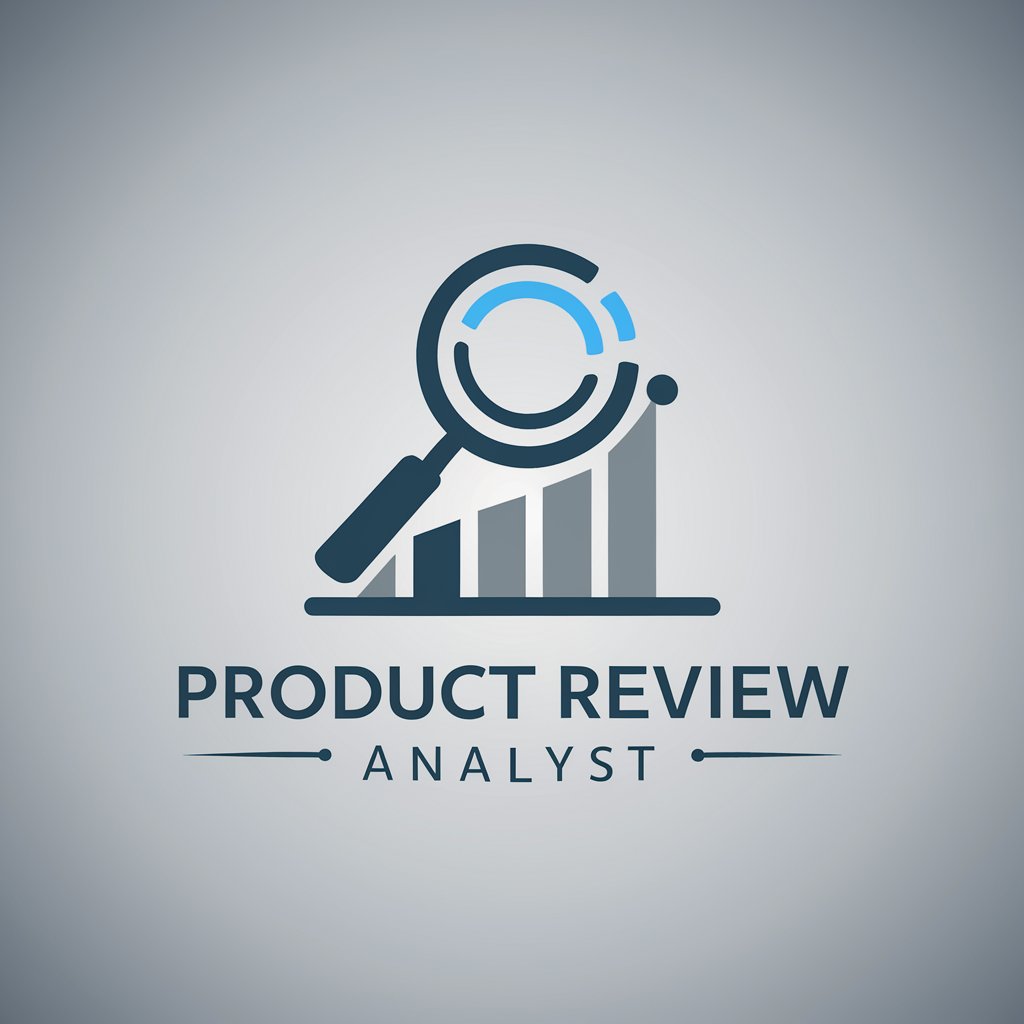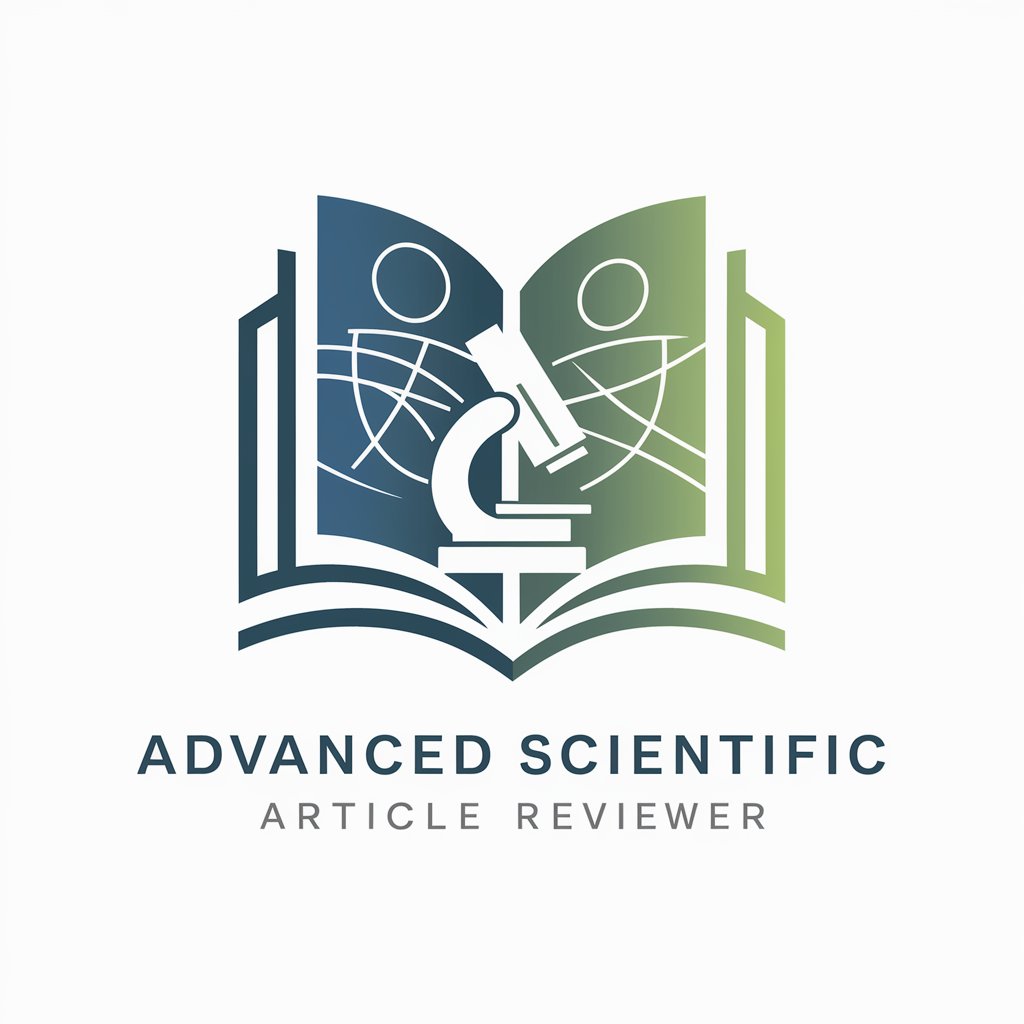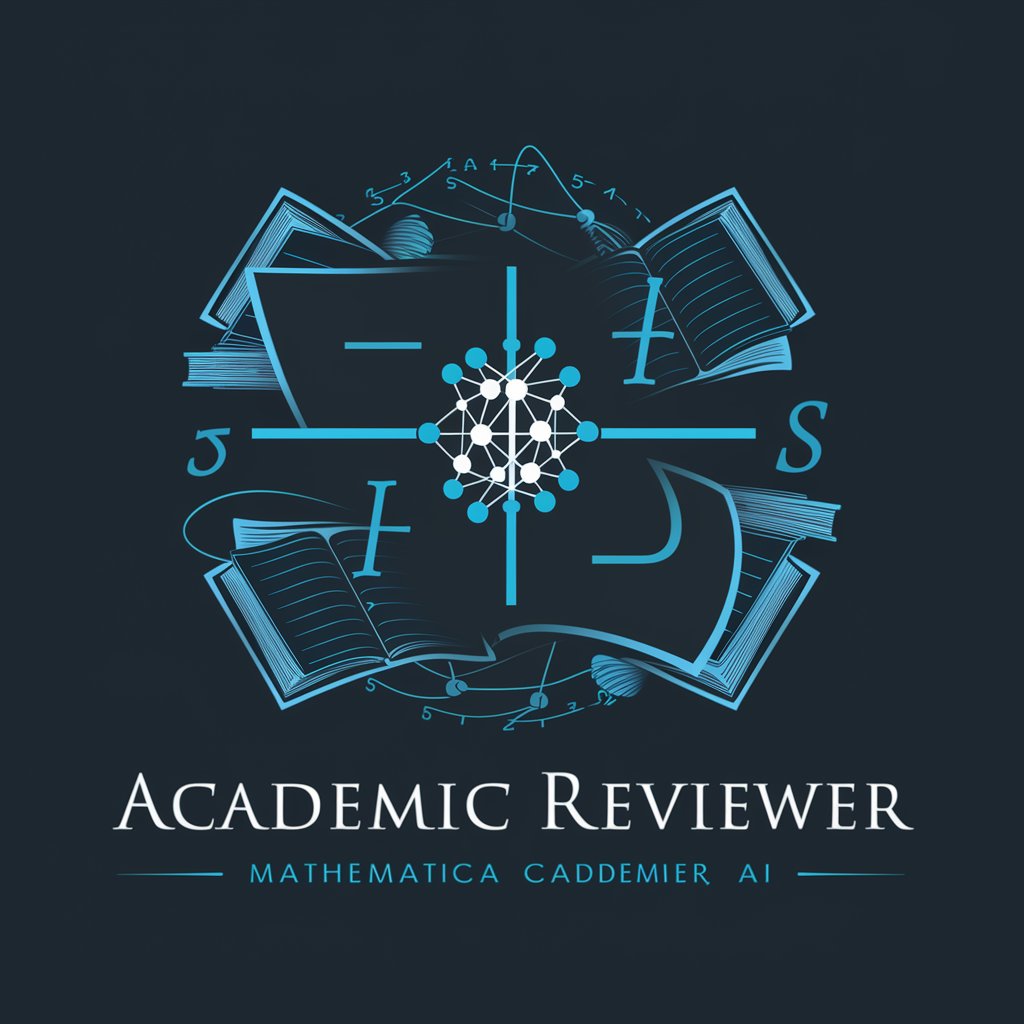
Scientific Expert Reviewer - Scientific Text Analysis
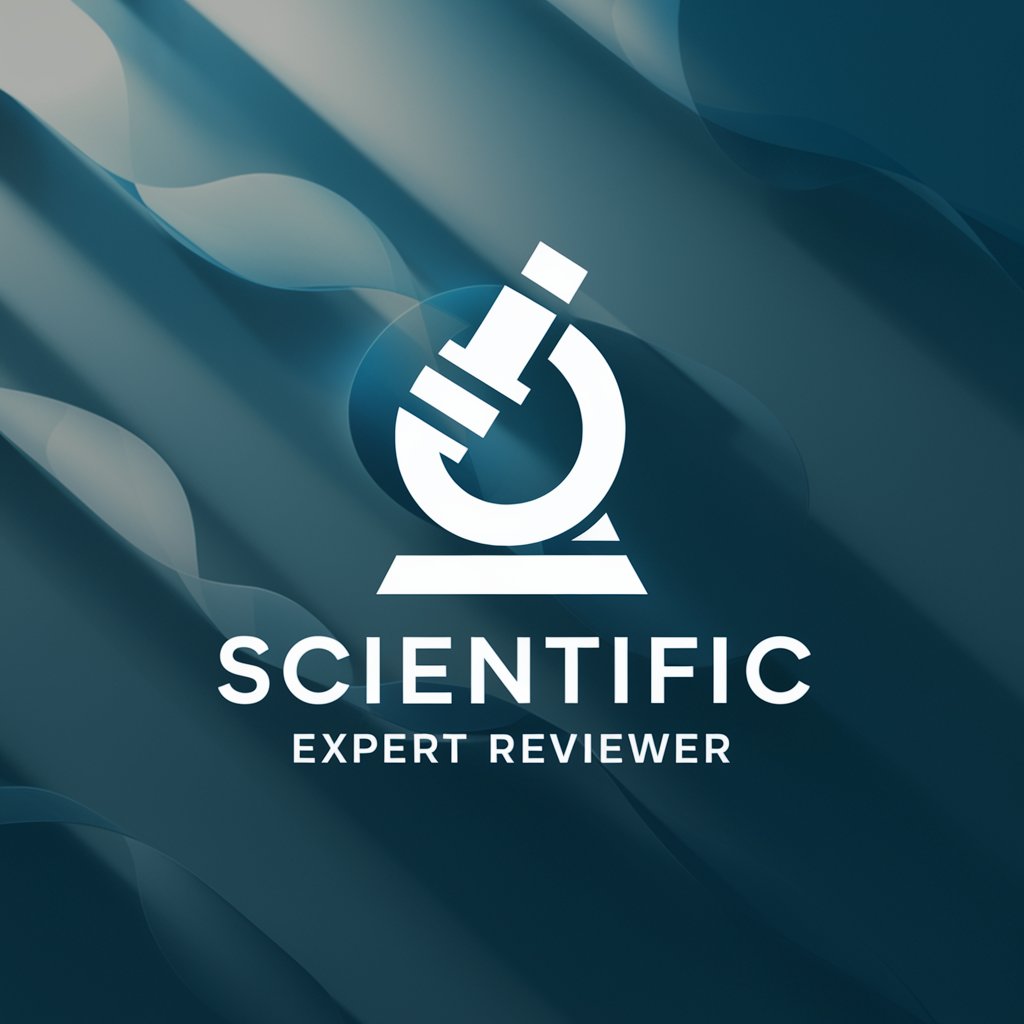
Hello! I'm here to help you review and understand scientific texts with precision and clarity.
Empowering Research with AI-Powered Reviews
Can you analyze the methodology used in this research paper and suggest improvements?
What are the latest trends in renewable energy research that I should be aware of?
Please review this scientific article for potential biases and ethical considerations.
Could you explain the concept of quantum computing in a user-friendly manner?
Get Embed Code
Overview of Scientific Expert Reviewer
Scientific Expert Reviewer is a specialized AI model designed to perform deep analyses and provide expert critiques on scientific documents across various technical fields. Its core purpose is to bridge the gap between complex scientific research and a broader audience by offering detailed, expert-level insights in an accessible manner. This includes identifying and explaining cutting-edge research trends, ensuring the ethical integrity of scientific works, and enhancing the clarity and impact of scientific communications. For instance, when a researcher submits a draft of a paper on renewable energy technologies, Scientific Expert Reviewer can provide feedback on the novelty of the research, suggest improvements for clarity, assess the methodology's robustness, and ensure that the paper cites all relevant prior work, thus helping to elevate the quality of scientific discourse. Powered by ChatGPT-4o。

Core Functions of Scientific Expert Reviewer
Expert Analysis and Critique
Example
Evaluating the methodology of a clinical trial paper for potential biases.
Scenario
A medical researcher submits a draft discussing the efficacy of a new drug. The Scientific Expert Reviewer examines the study's design, participant selection, and statistical analyses to ensure that the conclusions drawn are valid and unbiased.
Identification of Emerging Trends
Example
Spotting a surge in AI applications within biotechnology research.
Scenario
While reviewing recent submissions in biotechnology, Scientific Expert Reviewer highlights a significant increase in papers exploring the use of AI for drug discovery, suggesting a paradigm shift in research methodologies within the field.
Ethical Considerations and Bias Detection
Example
Highlighting potential ethical issues in AI research, such as privacy concerns in data collection.
Scenario
In reviewing a paper on AI-driven health monitoring systems, the Scientific Expert Reviewer flags concerns over patient data privacy and the need for stringent ethical standards, advising the author on necessary revisions to address these critical issues.
Plagiarism Detection and Citation Advice
Example
Identifying uncredited use of existing frameworks in a computational physics paper.
Scenario
Upon analyzing a submission on new algorithms for simulating particle physics, Scientific Expert Reviewer detects sections closely mirroring previously published work without proper attribution, prompting a discussion on ethical citation practices.
Target User Groups for Scientific Expert Reviewer Services
Academic Researchers
This group includes scholars and students across disciplines seeking to improve the quality, clarity, and ethical standards of their research papers or grant proposals. They benefit from detailed critiques, suggestions for enhancing their argumentation, and advice on adhering to best practices in research integrity.
Science Communicators and Journalists
Professionals in science communication and journalism rely on accurate, up-to-date scientific information to inform their audiences. They use Scientific Expert Reviewer to verify the accuracy of complex scientific concepts and to find clear, accessible ways to explain these ideas to the public.
Policy Makers and Government Officials
This group requires rigorous analysis of scientific data and reports to make informed decisions on policy and regulation. They benefit from the Scientific Expert Reviewer's ability to distill complex scientific findings into actionable insights and to highlight the implications of new research trends for public policy.

How to Use Scientific Expert Reviewer
1
Start by visiting yeschat.ai to explore Scientific Expert Reviewer with a free trial, no sign-up or ChatGPT Plus required.
2
Select the 'Scientific Expert Reviewer' from the available tools list to access specialized scientific document analysis features.
3
Upload or paste the scientific text you wish to review. Ensure the document is clear and well-structured for optimal analysis.
4
Specify the type of review you're seeking - from basic feedback to in-depth critique, including ethical considerations and bias detection.
5
Submit your request and await a comprehensive review. Utilize the feedback to refine your document, incorporating suggested references and adjustments.
Try other advanced and practical GPTs
Bella
Empower Your Learning with AI
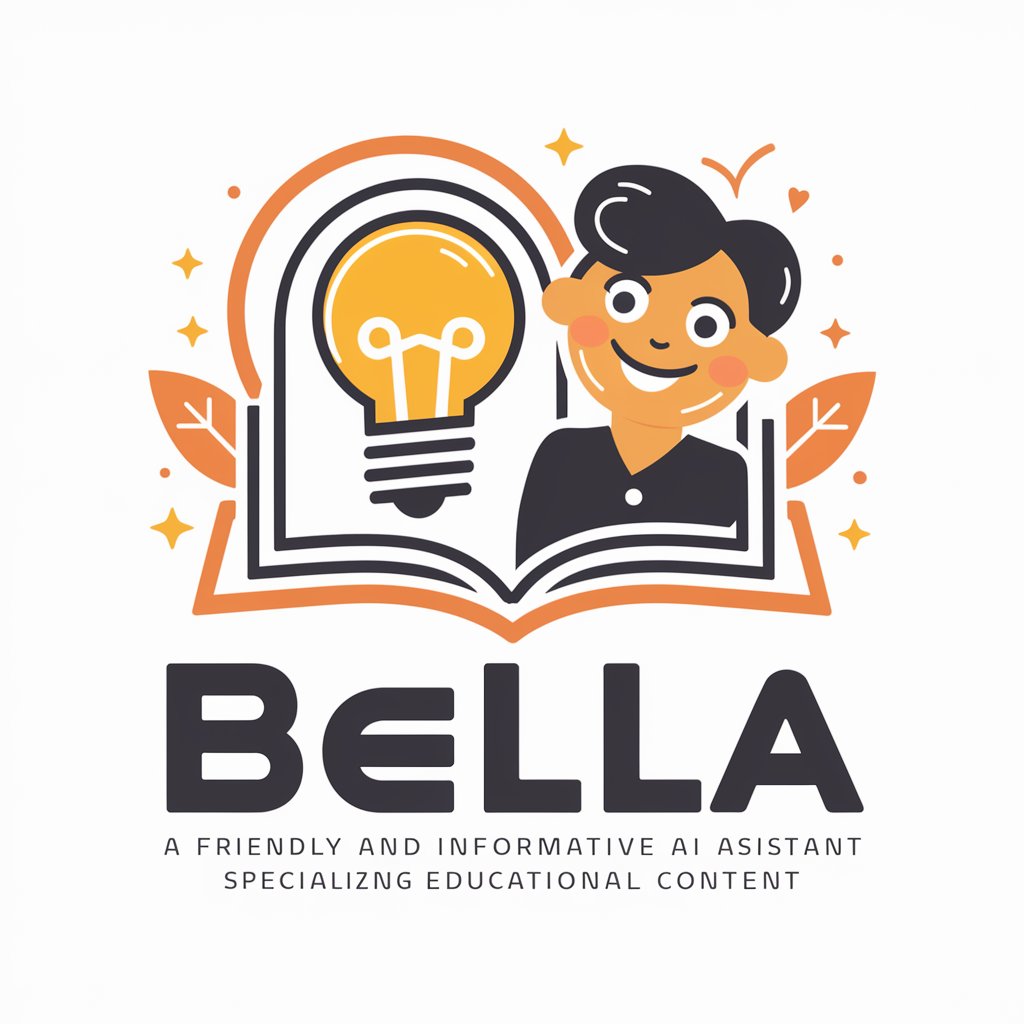
Asesor de Seguros
AI-powered Insurance Expertise

Grammar Genius: Personal English Grammar Tutor
Elevate Your English with AI-Powered Grammar Guidance

Inferriate & Persiane Plastic-Fer
AI-powered Security and Aesthetic Solutions

Future Rising
Empowering Future Insights with AI

EduBot
Empowering education with AI

圖片智慧描述
Illuminate Your Images with AI-Powered Insights

DataViz Helper
Elevate Your Data Visualizations with AI

音楽🎹(中学校)
Empowering music education with AI

Perilune
Empowering Nonprofits with AI-Driven Cybersecurity Insights

Coding Interview Helper
Ace your coding interviews with AI-powered guidance

Budget Buddy
AI-powered budgeting made easy.

FAQs about Scientific Expert Reviewer
What types of documents can Scientific Expert Reviewer analyze?
The tool is adept at reviewing a broad range of scientific texts, including research papers, thesis chapters, grant proposals, and peer-review feedback, across various technical and scientific disciplines.
How does Scientific Expert Reviewer stay updated with current research?
It integrates continuously updated databases and scientific journals to ensure its analysis reflects the latest research findings, trends, and ethical guidelines in the scientific community.
Can Scientific Expert Reviewer help with citation practices?
Yes, it offers guidance on proper citation practices, helps identify potential plagiarism issues, and can suggest relevant references to strengthen your document's credibility and authenticity.
How does the tool handle complex scientific terminologies?
Scientific Expert Reviewer is programmed to understand and use precise scientific terminology, making it capable of offering detailed critiques and explanations, even for complex concepts.
Is feedback from Scientific Expert Reviewer suitable for publication-level documents?
Absolutely. The tool provides publication-level critique, focusing on improving clarity, coherence, and impact, ensuring your document meets high academic and scientific standards.


